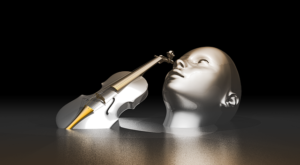Renew Hearing Support Reviews – Does It Really Helps To Support Hearing? – Outlook India
Tinnitus and Its Impact on Human Health: Tinnitus is commonly described as a ringing in the ears, but it also can sound like roaring, clicking, hissing, or buzzing. It may be soft or loud, high pitched or low pitched. This can occur in either one ear or in both ears. Roughly 10 percent of the adult population of the United States has experienced tinnitus lasting at least five minutes in the past year. This amounts to nearly 25 million Americans. Tinnitus is not actually a d…….

Tinnitus and Its Impact on Human Health:
Tinnitus is commonly described as a ringing in the ears, but it also can sound like roaring, clicking, hissing, or buzzing. It may be soft or loud, high pitched or low pitched. This can occur in either one ear or in both ears. Roughly 10 percent of the adult population of the United States has experienced tinnitus lasting at least five minutes in the past year. This amounts to nearly 25 million Americans. Tinnitus is not actually a disease. It is something that alarms that something is wrong in the auditory system, which includes the ear, the auditory nerve that connects the inner ear to the brain, and the parts of the brain that process sound. Something as simple as a piece of earwax blocking the ear canal can cause tinnitus. But it can also be the result of a number of health conditions like Noise-induced hearing loss, Ear and sinus infections, Diseases of the heart or blood vessels, Ménière’s disease, Brain tumors, Hormonal changes in women, and Thyroid abnormalities. Tinnitus is sometimes the first sign of hearing loss in older people. People who work in noisy environments—such as factory or construction workers, road crews, or even musicians—can develop tinnitus over time when ongoing exposure to noise damages tiny sensory hair cells in the inner ear that help transmit sound to the brain. This is called noise-induced hearing loss.
Pulsatile tinnitus is a rare type of tinnitus that sounds like a rhythmic pulsing in the ear, usually in time with your heartbeat. A doctor may be able to hear it by pressing a stethoscope against your neck or by placing a tiny microphone inside the ear canal. This kind of tinnitus is most often caused by problems with blood flow in the head or neck. Pulsatile tinnitus also may be caused by brain tumors or abnormalities in brain structure.
Even with all of these associated conditions and causes, some people develop tinnitus for no obvious reason. Most of the time, tinnitus isn’t a sign of a serious health problem, although if it’s loud or doesn’t go away, it can cause fatigue, depression, anxiety, and problems with memory and concentration. For some, tinnitus can be a source of real mental and emotional anguish.
Tinnitus does not have a cure yet, but treatments that help many people cope better with the condition are available. Most doctors will offer a combination of the treatments below, depending on the severity of your tinnitus and the areas of your life it affects the most.
● Hearing aids often are helpful for people who have hearing loss along with tinnitus. Using a hearing aid adjusted to carefully control outside sound levels may make it easier for you to …….







